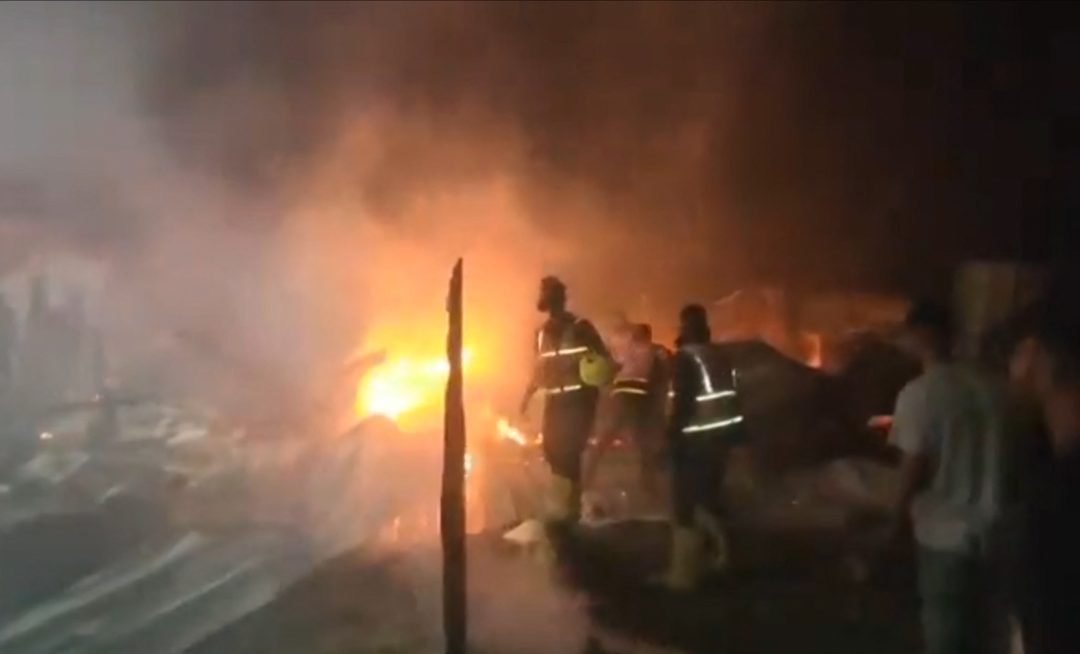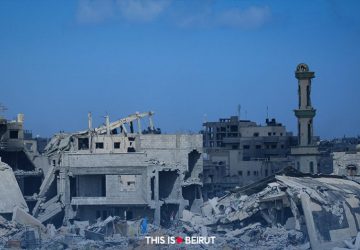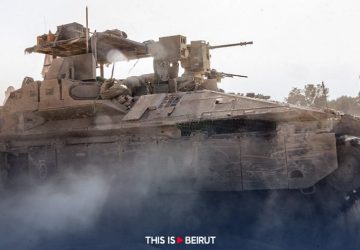Israeli airstrikes on a centre for displaced people in Rafah have killed dozens on Sunday evening, according to Gaza’s health ministry, drawing condemnation from human rights groups.
Hamas and the Palestinian Authority said Israeli strikes on a centre for displaced people killed dozens near the southern city of Rafah on Sunday, while the Israeli Army said it had targeted Hamas militants.
The health ministry in the territory said in a statement that the strikes “claimed the lives of 35 martyrs and left dozens injured, most of them children and women.”
The Hamas-run government media office in Gaza earlier said the attack hit a centre run by the UN agency for Palestinian refugees near Rafah, branding it a “horrific massacre.”
The Israeli Army said its aircraft “struck a Hamas compound in Rafah,” killing Yassin Rabia and Khaled Nagar, both senior officials for the Palestinian militant group in the occupied West Bank.
It added that it was “aware of reports indicating that as a result of the strike and fire that was ignited, several civilians in the area were harmed. The incident is under review.”
Israel’s army said on Sunday that at least eight rockets were fired towards central areas of the country from Rafah, with strikes targeting the commercial hub of Tel Aviv for the first time in months.
Fighting has recently centered on Rafah, where Israel’s military launched a ground operation in early May despite widespread opposition over concerns for civilians sheltering there.
The Palestinian Red Crescent said its ambulance crews transported “a large number” of people killed and injured in the strikes.
The Palestinian Authority presidency in the West Bank called it a “heinous massacre,” accusing Israeli forces of “deliberately targeting” the tents of displaced people.
Gaza’s civil defence agency said Israeli strikes killed and wounded at least 50 people in the area, where it said 100,000 displaced people live.
‘Strong Palestinian Authority’
Netanyahu vowed to pursue Israel’s offensive ahead of a war cabinet meeting amid intense diplomacy to forge a truce and a hostage-release deal.
He has long rejected Hamas’ demand for a permanent end to the conflict.
A senior Israeli official, speaking on condition of anonymity, told AFP that the war cabinet would “discuss a hostage release deal” on Sunday.
Before the meeting, Netanyahu’s office said Hamas’ chief in Gaza, Yahya Sinwar, “continues to demand the end of the war, the withdrawal of the IDF (army) from the Gaza Strip and leaving Hamas in place, so that it will be able to carry out the atrocities of October 7 again and again.”
“In order to make peace, we need a strong Palestinian Authority, not a weaker one,” said the EU’s foreign policy chief Josep Borrell, who met in Brussels with Palestinian Prime Minister Mohammed Mustafa.
Mustafa, whose government is based in the occupied West Bank, said the “first priority” was to support the people in Gaza, especially through a ceasefire, and then “rebuilding the institutions of the Palestinian Authority” in the territory after Hamas seized it from the PA in 2007.
The Israeli official had said on Saturday that “there is an intention to renew these talks this week” after negotiations involving US, Qatari, and Egyptian mediators stalled in early May.
Strikes on Tel Aviv
Hamas said on Sunday that it targeted Tel Aviv “with a large rocket barrage in response to the Zionist massacres against civilians.”
“Hamas launched these rockets from near two mosques in Rafah,” Israeli military spokesman Rear Admiral Daniel Hagari said.
The salvo sent people scrambling for shelter but there were no reports of injuries.
With AFP





